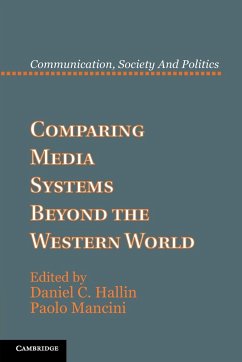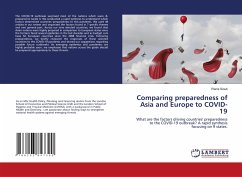Comparing Media Systems Beyond the Western World offers a broad exploration of the conceptual foundations for comparative analysis of media and politics globally. It takes as its point of departure the widely used framework of Hallin and Mancini's Comparing Media Systems, exploring how the concepts and methods of their analysis do and do not prove useful when applied beyond the original focus of their 'most similar systems' design and the West European and North American cases it encompassed. It is intended both to use a wider range of cases to interrogate and clarify the conceptual framework of Comparing Media Systems and to propose new models, concepts and approaches that will be useful for dealing with non-Western media systems and with processes of political transition. Comparing Media Systems Beyond the Western World covers, among other cases, Brazil, China, Israel, Lebanon, Lithuania, Poland, Russia, Saudi Arabia, South Africa and Thailand. Comparing Media Systems Beyond the Western World explores the relation between media and political systems in a wide range of non-Western contexts, analyzing the variety of ways in which media interact with the state and with various political actors and the roles journalists play in these relationships.
Hinweis: Dieser Artikel kann nur an eine deutsche Lieferadresse ausgeliefert werden.
Hinweis: Dieser Artikel kann nur an eine deutsche Lieferadresse ausgeliefert werden.
"This is a most welcome sequel to the editors' widely acclaimed and often cited Comparing Media Systems (2004). Whereas that earlier work derived three models of political communication systems, including four dimensions along which they could be compared, from analysis of 18 advanced capitalist democracies in Western Europe and North America, this publication branches out, ambitiously and insightfully, into other parts of the democratic world, including Eastern Europe, the Middle East, Latin, America, Asia and Africa. It is based on academic experts' case studies of the countries concerned, which consistently attain high standards of empirical and conceptual presentation. The results provide a rich mix of confirmation and critique of Hallin and Mancini's original framework plus ideas for other models, including hybridized ones. This book will arouse much interest, advance comparative understanding, and provoke debate."-Jay Blumler, University of Leeds








